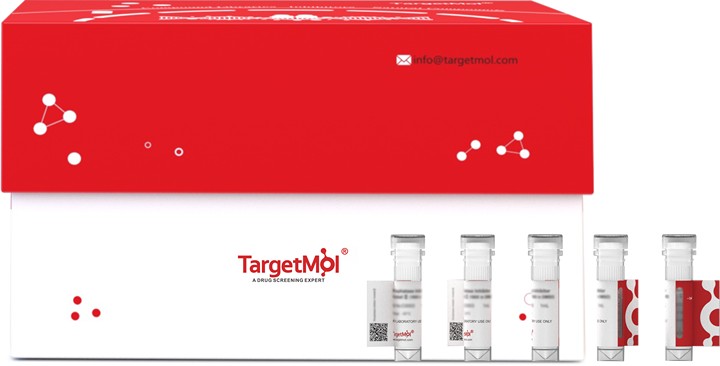Shopping Cart
- Remove All
 Your shopping cart is currently empty
Your shopping cart is currently empty

PARP1 Protein, Human, Recombinant (Avi & His), Biotinylated is expressed in Baculovirus-Insect Cells. The accession number is P09874.

| Pack Size | Price | Availability | Quantity |
|---|---|---|---|
| 20 μg | $588 | Backorder | |
| 100 μg | $1,380 | Backorder |
| Biological Activity | Activity testing is in progress. It is theoretically active, but we cannot guarantee it. If you require protein activity, we recommend choosing the eukaryotic expression version first. |
| Description | PARP1 Protein, Human, Recombinant (Avi & His), Biotinylated is expressed in Baculovirus-Insect Cells. The accession number is P09874. |
| Species | Human |
| Expression System | Baculovirus Insect Cells |
| Tag | C-His-Avi |
| Accession Number | P09874 |
| Synonyms | Poly-PARP,PARS,PARP-1,PARP,pADPRT-1,ARTD1,ADPRT1,ADPRT 1,ADPRT |
| Construction | A DNA sequence encoding the Human PARP1 (NP_001609.2)(Met1-Trp1014) was expressed with a C-terminal polyhistidine tag followed by an AVI tag. The expressed protein was biotinylated in vivo by the Biotin-Protein ligase (BirA enzyme) which is co-expressed. |
| Protein Purity | ≥ 90% as determined by SDS-PAGE. ≥ 90% as determined by SEC-HPLC. |
| Molecular Weight | 116.35 kDa (predicted); 104.5 kDa (reducing contition) |
| Endotoxin | < 1.0 EU per μg protein as determined by the LAL method. |
| Formulation | Lyophilized from sterile 20 mM Tris, 300mM NaCl, 10% glycerol, 0.5mM TCEP, 2mM EDTA, pH 7.5. Please contact us for any concerns or special requirements. Normally 5 % - 8 % trehalose, mannitol and 0.01% Tween 80 are added as protectants before lyophilization. Please refer to the specific buffer information in the hardcopy of datasheet or the lot-specific COA. |
| Reconstitution | Please refer to the lot-specific COA. |
| Stability & Storage | It is recommended to store recombinant proteins at -20°C to -80°C for future use. Lyophilized powders can be stably stored for over 12 months, while liquid products can be stored for 6-12 months at -80°C. For reconstituted protein solutions, the solution can be stored at -20°C to -80°C for at least 3 months. Please avoid multiple freeze-thaw cycles and store products in aliquots. |
| Shipping | In general, Lyophilized powders are shipping with blue ice. |
| Research Background | Poly (ADP-ribose) polymerase 1(PRAP1), also known as NAD(+) ADP-ribosyltransferase 1(ADPRT), is a chromatin-associated enzyme that modifies various nuclear proteins by poly(ADP-ribosyl)ation. The ADP-D-ribosyl group of NAD+ is transferred to an acceptor carboxyl group on a histone or the enzyme itself, and further ADP-ribosyl groups are transferred to the 2'-position of the terminal adenosine moiety, building up a polymer with an average chain length of 2-3 units. The poly(ADP-ribosyl)ation modification is critical for a wide range of processes, including DNA repair, regulation of chromosome structure, transcriptional regulation, mitosis and apoptosis. PARP1 is demonstrated to mediate the poly(ADP-ribose) ation of APLF (aprataxin PNK-like factor) and CHFR (checkpoint protein with FHA and RING domains), two representative proteins involved in the DNA damage response and checkpoint regulation. Further, It has been suggested that DNA-dependent protein kinase (DNA-PK), another component of DNA repair, suppresses PARP activity, probably through direct binding and/or sequestration of DNA-ends which serve as an important stimulator for both enzymes. PARP1 inhibitors are thus proposed as a targeted cancer therapy for recombination deficient cancers, such as BRCA2 tumors.Cancer ImmunotherapyImmune CheckpointImmunotherapyTargeted Therapy |

Copyright © 2015-2025 TargetMol Chemicals Inc. All Rights Reserved.